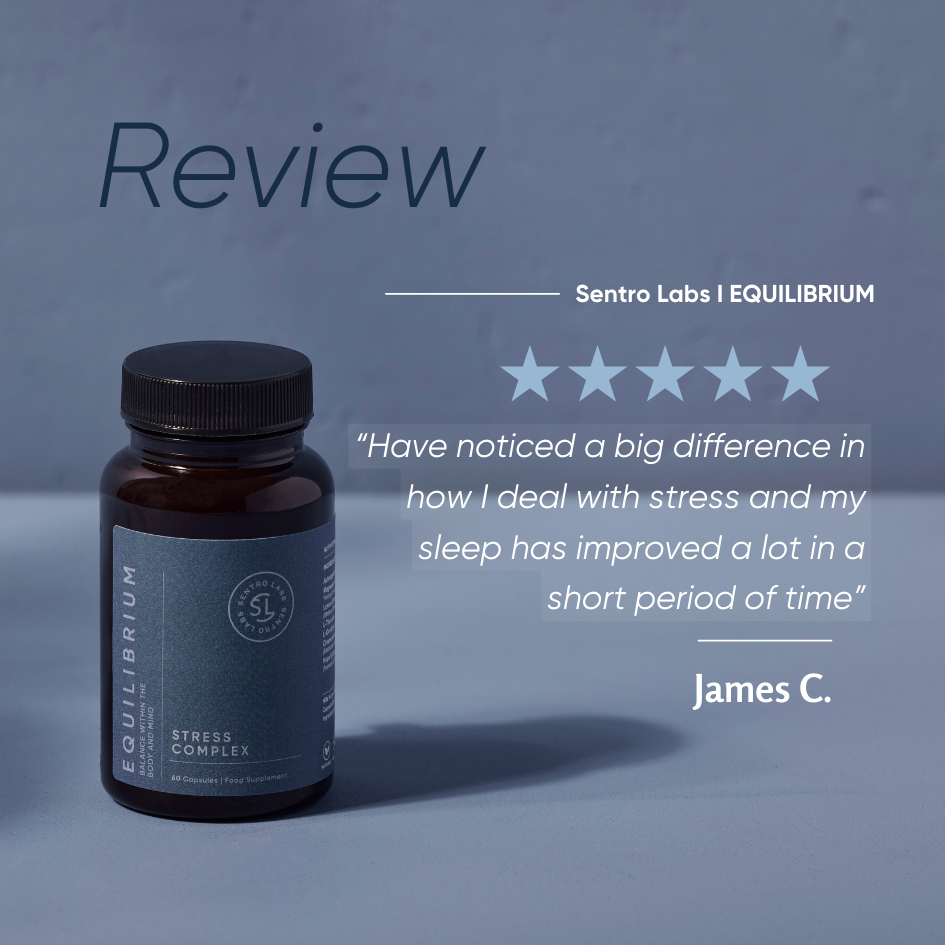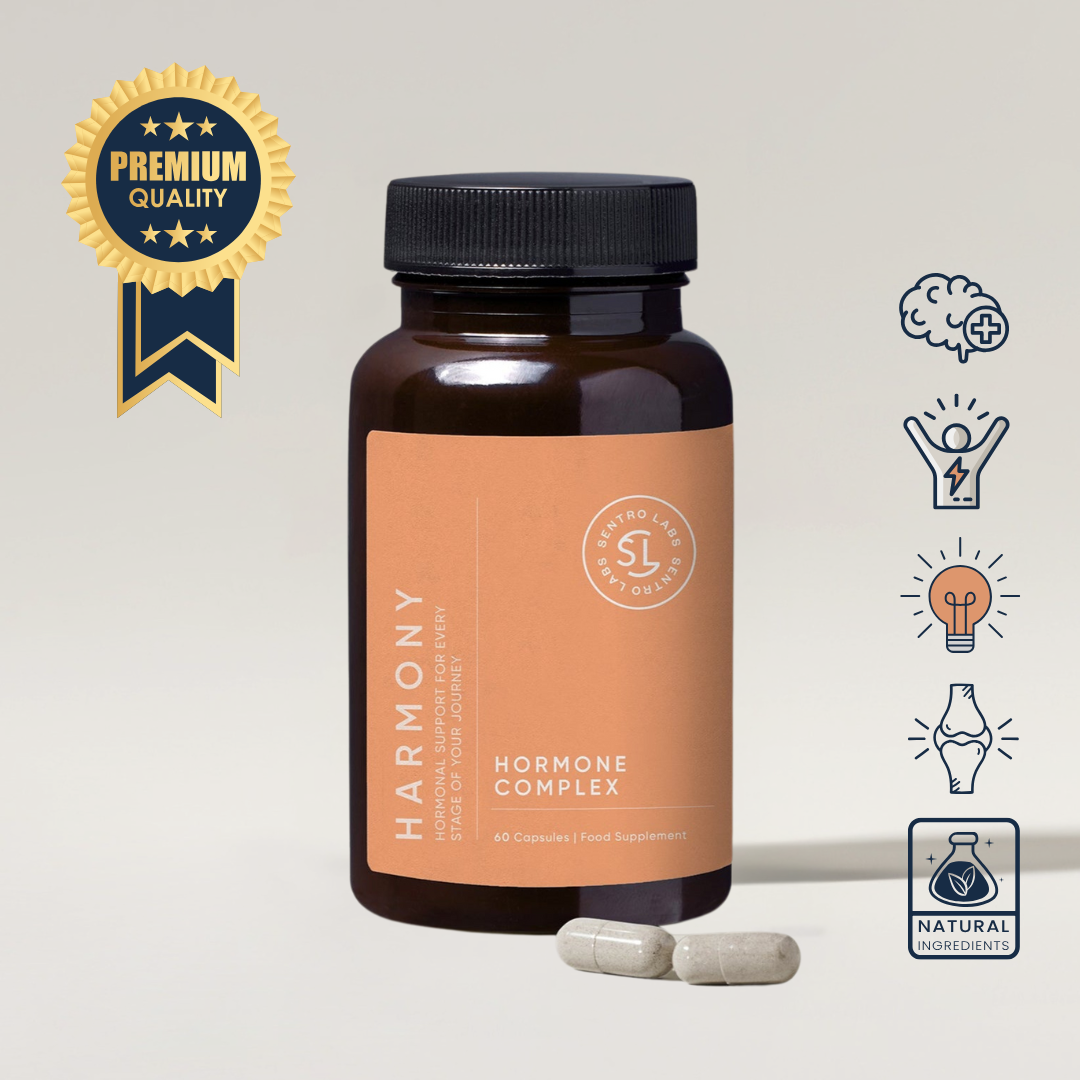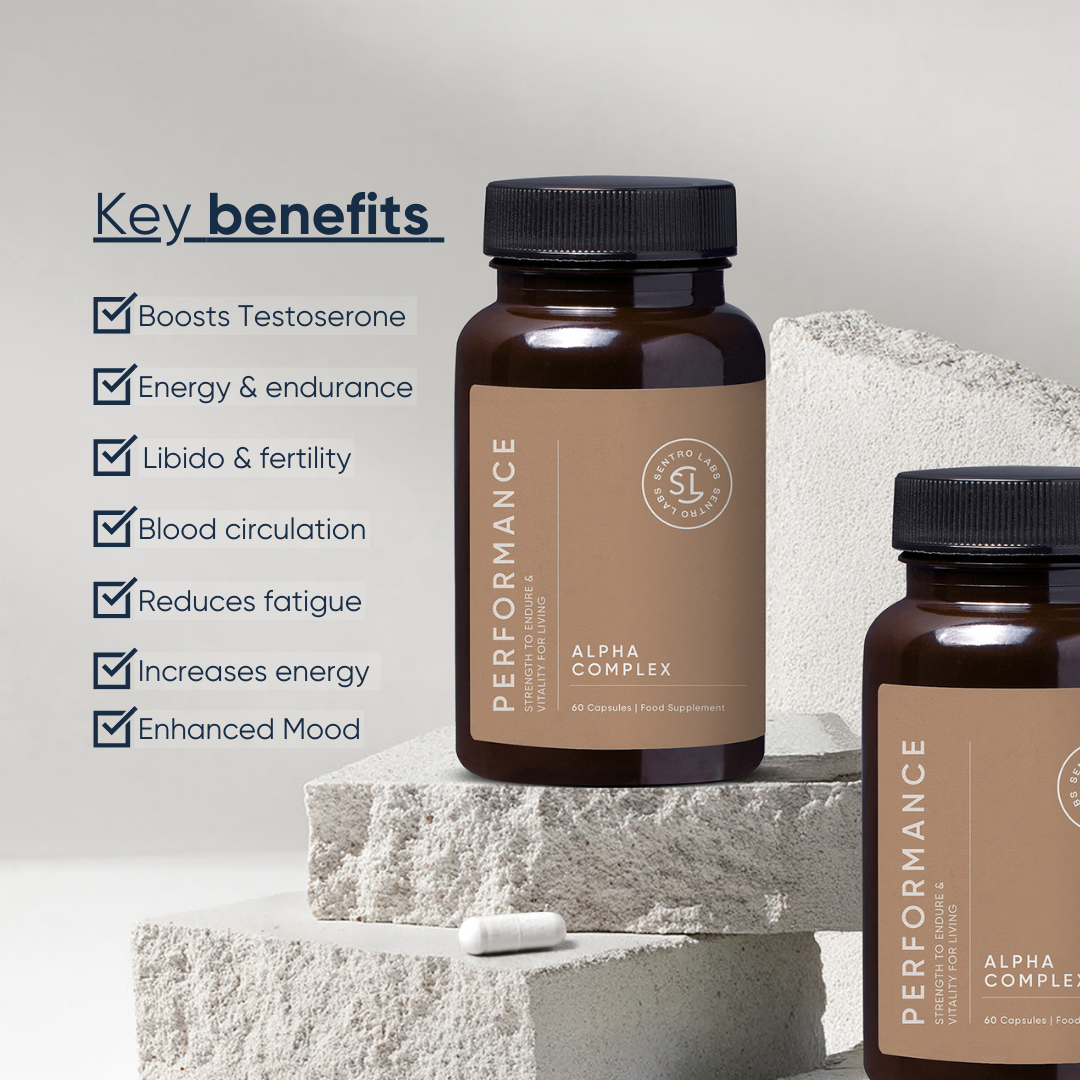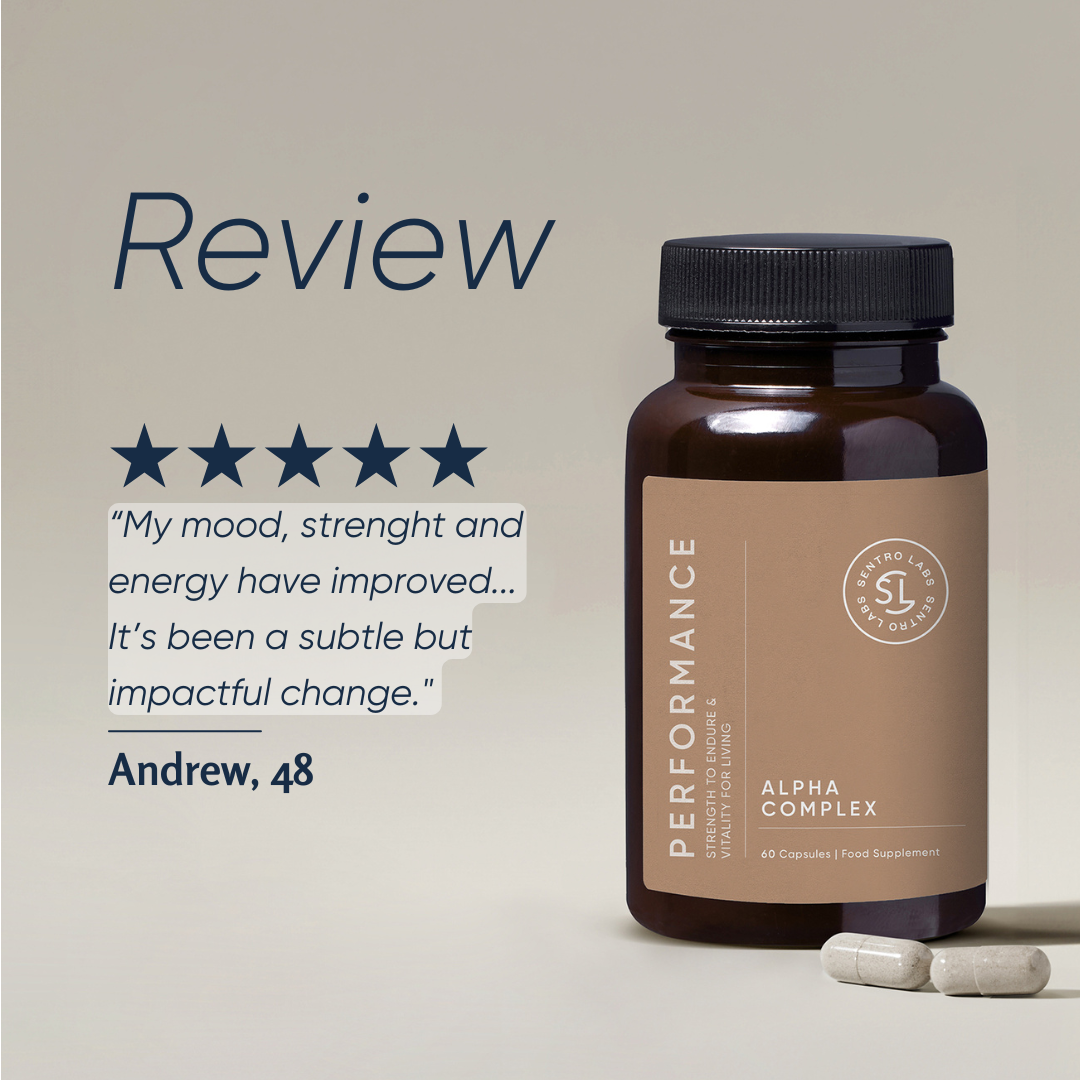Ever wondered why you feel alert in the morning and sleepy at night? Or why you toss and turn when you're stressed?
The answer lies in a hormone you might not have heard of: cortisol. This powerful hormone, produced by your adrenal glands, plays a crucial role in your sleep cycle, circadian rhythm, and overall sleep quality. But when cortisol levels are out of balance, it can lead to sleep disorders, sleep deprivation, and a host of other health issues.
Whether you're struggling with poor sleep, curious about the science behind sleep, or simply looking to improve your sleep quality, this blog is for you. We’ll unpack the link between cortisol and sleep, so you can enjoy better rest.
The Role of Cortisol in the Body
Cortisol, often dubbed as the "stress hormone", plays a pivotal role in our body's physiological functions. It's not just about managing stress, but it's also about maintaining a delicate balance in our body's various systems. From regulating metabolism to controlling blood pressure, cortisol is a key player in our overall health and wellbeing.
Cortisol certainly boasts a finely tuned production process. Initiated within the control center of our brain, the hypothalamus, this hormone's production activates with the release of corticotropin-releasing hormone (CRH). As the signal reaches the pituitary gland, our body succumbs to the need of adrenocorticotropic hormone (ACTH).
ACTH surges through our bloodstream, reaching the adrenal glands perched atop our kidneys. Propelled by this signal, the adrenal glands commence the final stage of cortisol production. This process, however, is a balancing act. Once produced, cortisol lets the hypothalamus know, by curtailing CRH's release, that its work here is done.
This hormones intricate production route is not a lone journey but regulated by the hypothalamic-pituitary-adrenal (HPA) axis. This trio, interconnecting the central nervous and endocrine systems, dynamically communicates to regulate cortisol levels. The process ensures cortisol release is fine-tuned to our body's changing needs.
Cortisol production is linked with several neurotransmitters such as norepinephrine (NE), GABA, and glutamate. These substances can amplify or mitigate CRH release, adding another level of regulation to this complex process.
It's responsible for regulating our metabolism and maintaining our blood sugar levels. A balanced cortisol level also aids in controlling our blood pressure. This hormonal control is fundamental in promoting heart health.
Cortisol is key in reducing inflammation in our body. By suppressing immune system responses that lead to inflammation, it ensures that body functions are carried out without hindrance. It also helps us respond effectively to illnesses and potential health threats and regulates our energy levels, making sure we have enough fuel to face the day's challenges.
Finally, cortisol also contributes to the regulation of the sleep-wake cycle, showing a direct link between our sleep patterns and cortisol production.
How Does Cortisol Affect Sleep?
Cortisol plays an integral role in our sleep patterns and overall wellness. Aptly known as the stress hormone, it's crucial for stirring our alertness, particularly as we start our day. However, like many things in life, balance is key. Too much cortisol, especially at inappropriate times, can lead to sleep disturbances.
Consider the cortisol and sleep dynamic as a dance. In the mornings, higher cortisol levels help us wake up and prepare for the day ahead. This hormone helps to stimulate our senses and sharpens our focus and energy to tackle the day's activities. However, by the evening, one would expect cortisol levels to diminish to give way to our body's internal sleep drive.
When this cortisol rhythm is disturbed, it often brings about sleep-related issues. Elevated cortisol levels in the evening might result in difficulty falling asleep, otherwise known as insomnia. It can even cause sleep fragmentation, which means, while you might fall asleep, you find yourself waking up at odd hours of the night.
It's also worth noting certain stress factors can trigger a sustained spike in cortisol. Should this occur, it can result in a continuous state of arousal that disrupts sleep, contributes to sleep deprivation, and possibly lead to chronic sleep disorders. Understanding and maintaining a healthy cortisol rhythm is essential to ensuring a good night's sleep.
Cortisol Levels and Sleep Disorders
Research has provided us with indicators showing that high cortisol can upset the calm rhythm of sleep. For instance, heightened activity of the Hypothalamic-Pituitary-Adrenal (HPA) axis, driven by high cortisol, is often linked to restless, fragmented sleep patterns. This fragmentary sleep, alternated with instances of wakefulness, can be evidence of a sleep disorder. Sleep deprivation, a common result of such a cycle, tends to push cortisol levels even higher, exacerbating the sleep problems.
Now, let's take a deeper glance at specific sleep disorders like insomnia and sleep apnea. Intriguingly, high cortisol is almost a constant guest with these disorders, particularly insomnia. But scientists are still grappling with the chicken-or-the-egg question: Is cortisol causing these sleep disorders, or is its elevation just a symptomatic response?
There is even evidence pointing towards a link between insufficient cortisol and sleep imbalances.
In healthy amounts, cortisol garners wakefulness and alertness - crucial for starting our day. In this context, it could be suggested that having lower-than-normal cortisol levels in the morning might make it increasingly challenging to wake up, leading to feelings of grogginess and exhaustion, hallmarks of certain sleep problems.
Cortisol plays an important role in managing our body's clock, or circadian rhythm. Low cortisol levels could potentially disrupt this rhythm, skewing our sleep-wake cycle and leading to poor sleep quality.
Why is Cortisol High at Night?
Prolonged light exposure or sudden stress can elevate cortisol levels at night. This increase imitates our body's natural 'fight or flight' response, disrupting our sleep patterns.
Working in shifts that require you to be active when you should be sleeping can also produce a higher nighttime cortisol level. This irregular sleep-wake cycle alters our body's hormone regulation.
Chronic stress, both mental and physical, is a primary contributor. Prolonged periods of high stress can increase cortisol production, leading to sleep disturbances and other health problems.
The quality of your sleep can also influence your cortisol production. Insufficient or poor-quality sleep can raise cortisol levels, causing you to feel more awake and alert at night, further aggravating your sleep problems.
Finally, adopting inconsistent sleep schedules, such as those practised by shift workers, can interfere with your body's normal cortisol rhythm, leading to high cortisol at night. Maintaining a regular sleep pattern is vital for healthy cortisol regulation.
How to Manage Cortisol Levels for Better Sleep
Understanding how to manage cortisol levels for better sleep can be a game-changer for those struggling with sleep issues. It's not just about reducing cortisol, but maintaining a healthy balance of this crucial hormone. Too much or too little can disrupt your sleep patterns and overall well-being.
Lifestyle Changes to Regulate Cortisol Levels
- Ensure Proper Sleep: The connection between cortisol and sleep is undeniable. Strive to get enough sleep every night to keep your cortisol levels in check.
- Follow a Regular Exercise Regime: Light to moderate exercise, such as Yoga or Tai Chi, can help avoid spikes in cortisol levels and facilitate sound sleep.
- Cultivate Mindful Awareness: Mindfulness-based stress reduction activities can help you manage stress triggers, lower cortisol levels, and improve sleep.
- Reframe Negative Thoughts: The next time you find yourself drowning in self-criticism or negative thinking, make it a point to shift your thoughts towards positivity. Reducing mental stress is essential to lower cortisol levels.
- Follow a Balanced Diet: Maintaining a nutritious diet can help keep your cortisol levels steady. Include plenty of fresh fruits, vegetables, and dark chocolate, which can help in reducing cortisol.
Natural Supplements to Help Manage Cortisol Levels
- Vitamins B6, B5 and C are known to support optimal adrenal gland activity, which is key in managing cortisol production. These nutrients are often depleted in periods of prolonged stress, so keeping them supplemented is crucial.
- L-tyrosine and L-theanine directly support the adrenal glands, with noted benefits in tackling fatigue and anxiety symptoms often associated with high cortisol levels.
- Essential minerals such as calcium, magnesium, potassium, manganese, and zinc are required for the proper functioning of cortisol feedback mechanisms.
- Ashwagandha, or Indian ginseng, has been shown to reduce cortisol equivalents in studies, while also enhancing mood, reducing anxiety, and increasing energy levels.
- The plant extract Magnolia officinalis has demonstrated cortisol-lowering properties in research and may improve mood, promote relaxation, and aid in stress reduction.
- Phosphatidylserine (PS), also known as lecithin phosphatidylserine, has been found to blunt the rise in cortisol levels following strenuous activities or exposure to physical stress.
- Targeting GABA activity through reducing glutamate signalling can help manage cortisol levels for better sleep. L-Theanine is a glutamate receptor antagonist known to support this mechanism.
- Lastly, N-acetylcysteine (NAC), a known precursor for necessary components of glutathione, is recognized for its ability to decrease glutamate levels, thereby supporting healthy HPA axis activity.
Equilibrium, a supplement designed to promote stress relief and balance, also plays a significant role in improving sleep quality. Packed with calming ingredients like Ashwagandha, L-Theanine, and Chamomile extract, Equilibrium works to naturally reduce cortisol levels—the hormone responsible for feelings of stress and anxiety. By lowering cortisol, especially in the evening, it helps your body transition more smoothly into rest mode, setting the stage for deep, restorative sleep.
L-Theanine, an amino acid found in Equilibrium, is known for promoting relaxation without drowsiness. It calms the mind by increasing the production of alpha waves, which can lead to a sense of calm and relaxation. Combined with Magnesium Bisglycinate, which helps relax muscles and calm the nervous system, this supplement encourages the body to let go of tension, further aiding in better sleep quality.
With its powerful adaptogens and sleep-enhancing ingredients, Equilibrium ensures that you not only manage stress during the day but also wake up feeling refreshed and ready to take on whatever comes next.
The Interplay Between Cortisol and Sleep
In conclusion, the interplay between cortisol and sleep is a delicate balance that can significantly impact our overall health. Elevated cortisol levels, often a result of chronic stress, can disrupt our sleep patterns and lead to a host of sleep disorders. Conversely, poor sleep can also lead to an increase in cortisol production, creating a vicious cycle.
However, it's important to remember that cortisol isn't the enemy. When regulated properly, it plays a crucial role in our sleep-wake cycle, helping us wake up in the morning and fall asleep at night. By understanding how cortisol and sleep interact, we can take steps to manage our cortisol levels, improve our sleep quality, and ultimately, enhance our overall well-being.
Remember, it's not about eliminating cortisol, but about keeping it in check. Ready for better sleep and less stress? With Equilibrium's unique blend of natural ingredients like Ashwagandha and L-Theanine, you can balance your cortisol levels, calm your mind, and enjoy restful nights. Take control of your sleep and well-being today—try Equilibrium and wake up refreshed!



















Share:
What Are the Three Major Stress Hormones?
L-Theanine Side Effects and Benefits